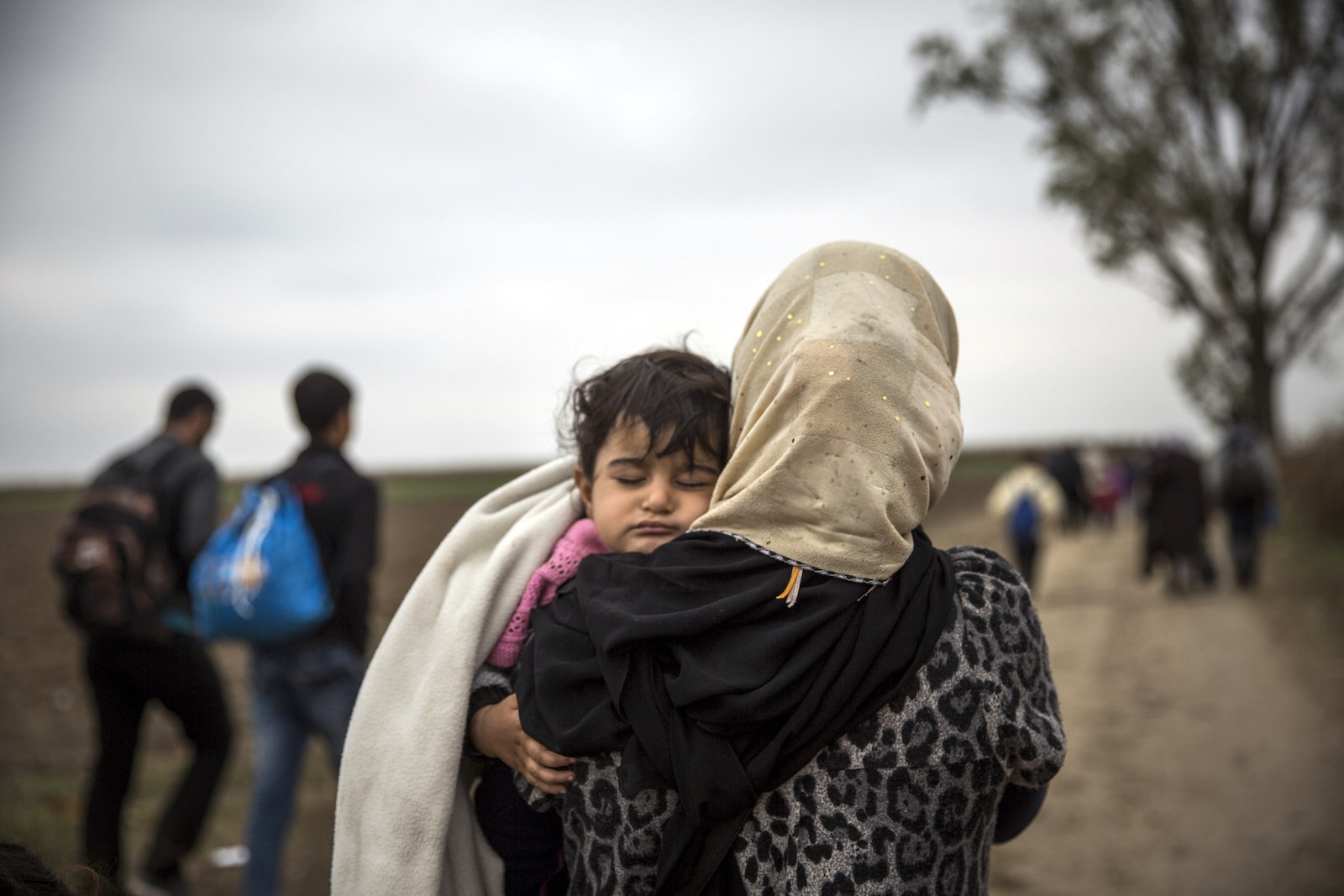
Terrorists Recruit Children with Disabilities. I saw it Firsthand.
It may not cross our minds that terrorists like ISIS would recruit children with disabilities. Yet, this happens to a great extent. I had an eye-opening experience while serving the most vulnerable populations of the bloody Syrian conflict as a consultant with the UN Office for the Coordination of Humanitarian Affairs (UNOCHA) in Turkey in 2018.
During a six-month contract, I was able to establish direct contacts with Syrian refugees and displaced persons including children with disabilities. I listened to their heartbreaking stories of the effects of war on civilians and the devastating results of barrel bombs and other deadly attacks that left thousands of children with permanent disabilities.
Nonetheless, that is what wars do to innocent civilians. What I could not fathom, however, was the great interest and power of terrorists to recruit children with disabilities, whether these disabilities were caused by the war or by genetic illness. Before we examine how these “bad guys” succeed in mobilizing children with special needs to their terror organizations, we need to understand why.
Islamic State, or Daesh, and Al Qaeda affiliated groups, are two major terrorist groups that operate in multiple areas in Syria. The complexity of the conflict allows them to dominate vulnerable populations in remote villages and take advantage of the parasitical environments.
The terrorists have a very structured hierarchy and discipline that distinguish them from other armed revolutionary groups. Therefore, it is important for the “bad guys” to fulfill their needs and maintain different types of services. The terrorists need janitors, cooks, etc to keep their operations going on a daily basis.
The terrorists target children with disabilities who are extremely marginalized by their own families, communities and the overall culture of shame. The terrorists act as “incubators” for these vulnerable groups by giving them a sense of being important and have roles to play. They use them to work at the bottom of the organizational hierarchy and eventually, they can use them as suicide bombers.
While listening to Syrians who have children with special needs, the flashbacks of memories of decades of wars in Iraq crossed my mind as if they just happened yesterday. Many years ago, in Baghdad, Iraq, where I am originally from, there was a monster at one of the neighbor’s homes, that all children, including myself, were scared of. One day I managed to sneak in to see the “monster” with my very eyes, and I was terrified by what I had seen.
It was a “giant” being as dirty as you could ever imagine, lived in a cage, half-naked, barely covered with a ragged filthy coat with a couple of “dog dishes” for his food and water. I ran away with tears and did not even share what I witnessed until several years later when the monster died: only then did I ask about the monster. The answer was more shocking than I would have expected. It was just a kid with severe mental illness and seizures.
His family was ashamed of him and kept him out of sight and never sought any help from the government, community, or any other organizations. The social and cultural stigma of shame and mortification of families who have children with disabilities was incomprehensible, especially in the 21st century.
Fast forward to the Syrian children with special needs and the terrorists: I realized that this societal prejudice towards these vulnerable children is still in effect. A Syrian refugee shared with me the story of his cousin who suffered from mental illness and genetic back deformity, and who joined ISIS group when he was only 12 years old.
The child was not treated equally as other siblings and was not allowed to even join the family for dinner. Parents and older siblings were embarrassed by him and younger siblings were afraid of him. The child was not registered in school, was not allowed to speak or ask for anything he needed, not to mention that he was not allowed to play with other kids.
By the age of twelve, he was recruited by ISIS members to serve in the mess hall in return he would receive money, skills of self-defense, and a gun. The child immediately accepted the offer and vanished from his family who was not bothered by his disappearance. A few years later, the family learned that the child who was 15 years old by then, was killed as a suicide bomber in one of ISIS’s offensives.
The stories go on and on with mothers of children with disabilities, who simply stated that they did not know how to care for their children and that the society was too harsh on them to seek support. There were many examples of vulnerable children with special needs who joined these terror groups only because they “finally” experienced a sense of value, appreciation, and humanity.
These children have the right to live with dignity, respect, and have a sense of value. I found it very ironic and tragic to have cultures full of inhumanity and oppression of children with special needs, while the most barbaric terrorists’ groups have an effective approach to attract children simply by giving them a sense of purpose even if that leads to serving an evil cause!
In my opinion, if we really want to defeat ISIS and other terrorists’ organizations, there are several concrete steps to be considered.
First, is to acknowledge that war on terror in its traditional form is not effective enough. It is the responsibility of the United States and international donors to combat terrorists. The impact of conflicts on children and youth should be included in all humanitarian and stabilization programs. Programs need to be better coordinated, thought through, monitored and measured to ensure an effective and positive outcome.
Second, there should be significant investments in children including those with special needs, to build a life with dignity and opportunities. There should be an investment in cultural change where families and institutions can work together to achieve healthy upbringing of children to ensure there is no stigma nor prejudice toward children with special needs.
Finally, the impact of war on children should not be underestimated or overlooked, since these kids soon will grow up and become more susceptible to the ideologies of the bad guys. Good societies and local institutions even in fragile states should be empowered to be better incubators for children to prevent sowing the seeds of radicalization and hate.

